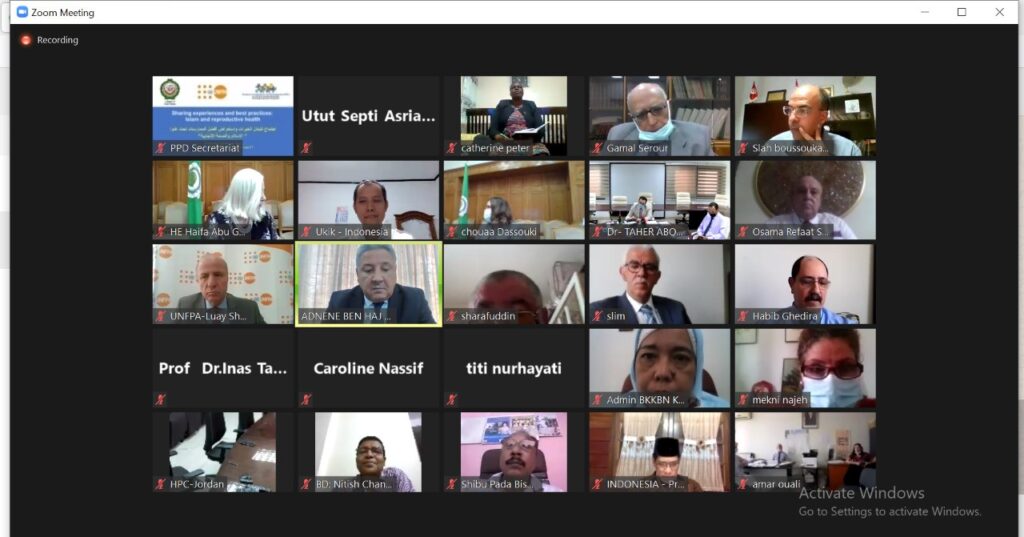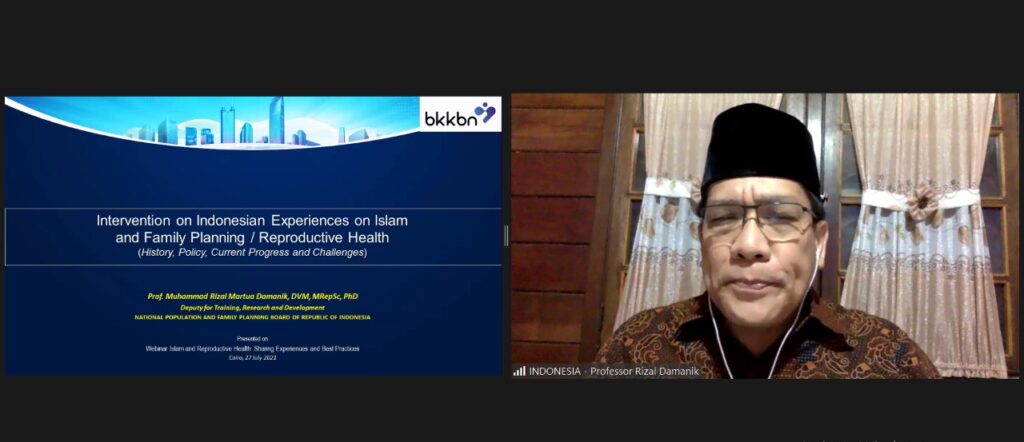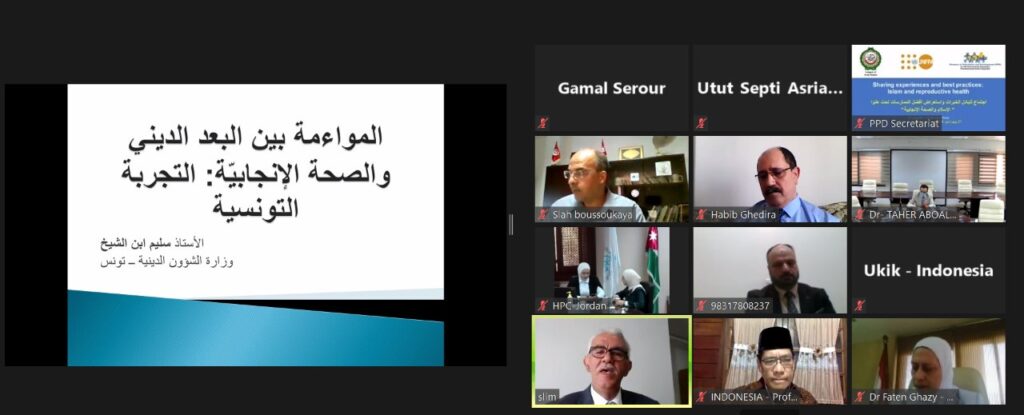
Jakarta – “The ulema and BKKBN work hand in hand to motivate, inform, educate, and communicate BKKBN activities to the public,” said Deputy for Training and Development of the National Population and Family planning Board (BKKBN) Prof. drh. Muhammad Rizal Martua Damanik, MRepSc, Phd, during an event titled “Sharing Experience and Best Practices: Islam and Reproductive, A Joint Collaborative Activity between the General Secretariat of the League of Arab States and Partners in Population and Development” which was held on a virtual platform on Tuesday (27/07).

Damanik added that, “As part of their support, ulemas are writing books and articles about reproductive health and family planning. They are also involved in seminars, radio and TV talk shows, study visits, workshops, and other activities.” Ulemas play a significant role in the success of BKKBN’s programs, especially considering that 88.2% of Indonesian population are Muslims – the world’s largest Muslim population.
BKKBN also engages with other national Muslim organizations, such as NU, Muhammadiyah, and the Cooperation Body of Indonesian Islamic Boarding Schools (BKsPPI) to ensure that reproductive health information and education for adolescents also reach students in Indonesian Islamic boarding schools.
Further on the role of ulema, through the Indonesian Ulema Council (MUI), ulema demonstrates their central position in the society through their fatwa issuance, including concerning population and family planning programs. MUI’s fatwas, among others, establish that pregnancy planning does not go against sharia and national laws as well as Pancasila; use of contraceptives is allowed to protect the health of mothers and children, abortion is against Islam, couples must consent to family planning participation, and that vasectomy and tubectomy should only be used as the last resort in an emergency situation, e.g. risk of disease transmission from mother to child and if another pregnancy may pose serious health even fatality risks to the mother.

According to Prof. Slim Ben Sheiksh, a representative of the Ministry of Religious Affairs Tunisia, “Islam addresses family planning. Islam recognizes coitus interruptus, maternity privileges, and breastfeeding until the infant is two years old. Women are special beings in the eyes of Islam and Islam has stipulations to protect women that can be found in the Qoran and Hadith. Family planning and reproductive health are not against Islam.”
The event was also attended by Dr. Jamal Abu Sourour (Director of International Islamic Centre for Research in Population Universitas Al Azhar), H.E. Haifa Abu Ghazala (Head of Social Affairs Dept League of Arab States), Adnene Ben Haj Aissa (Executive Director PPD), Dr. Louay Shabana (UNFPA Arab States) and Prof. Habib Ghedira (President Director general of the National Board of Family and Population and Chair of the Arab Council on Population and Development).(humas/im)